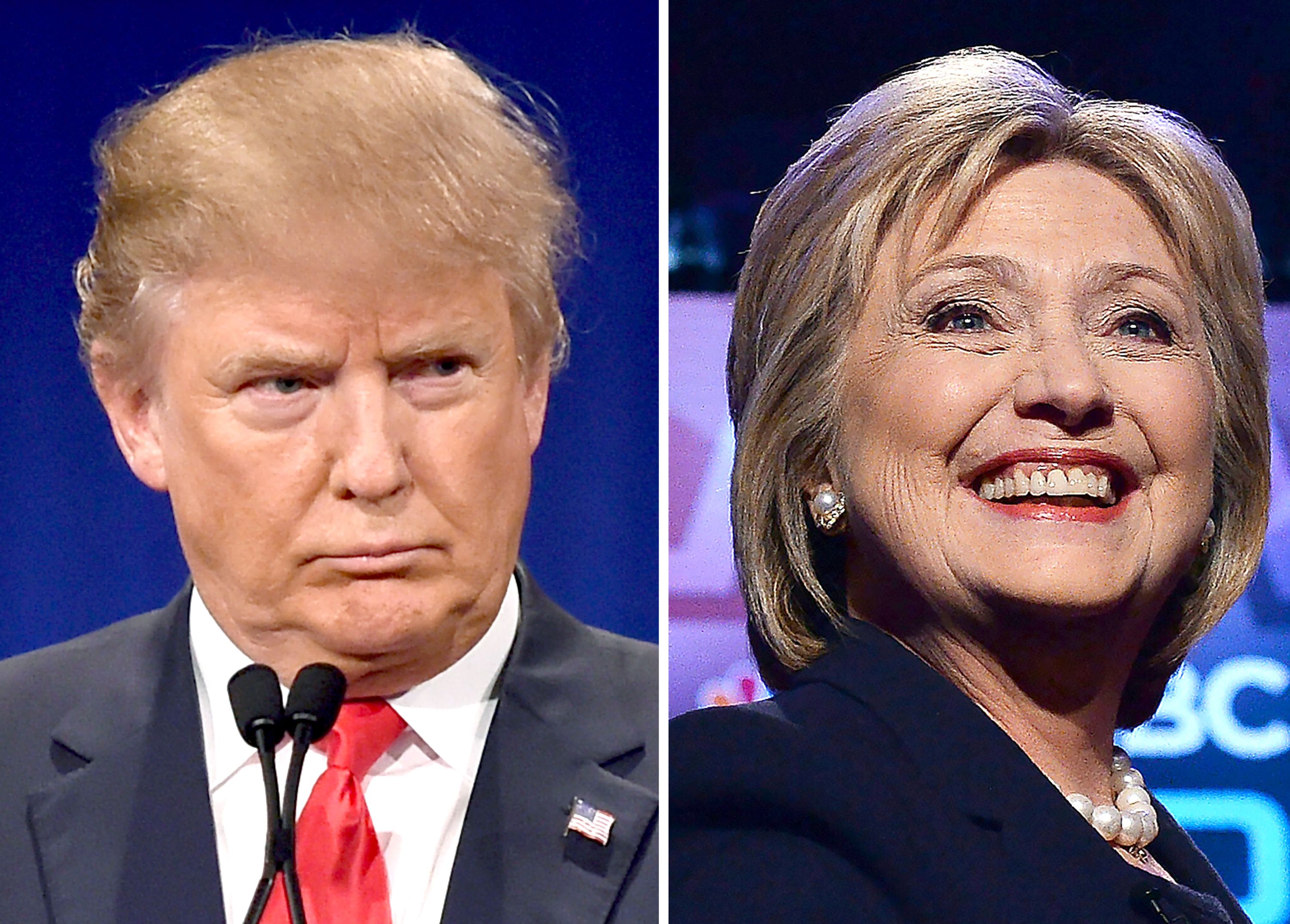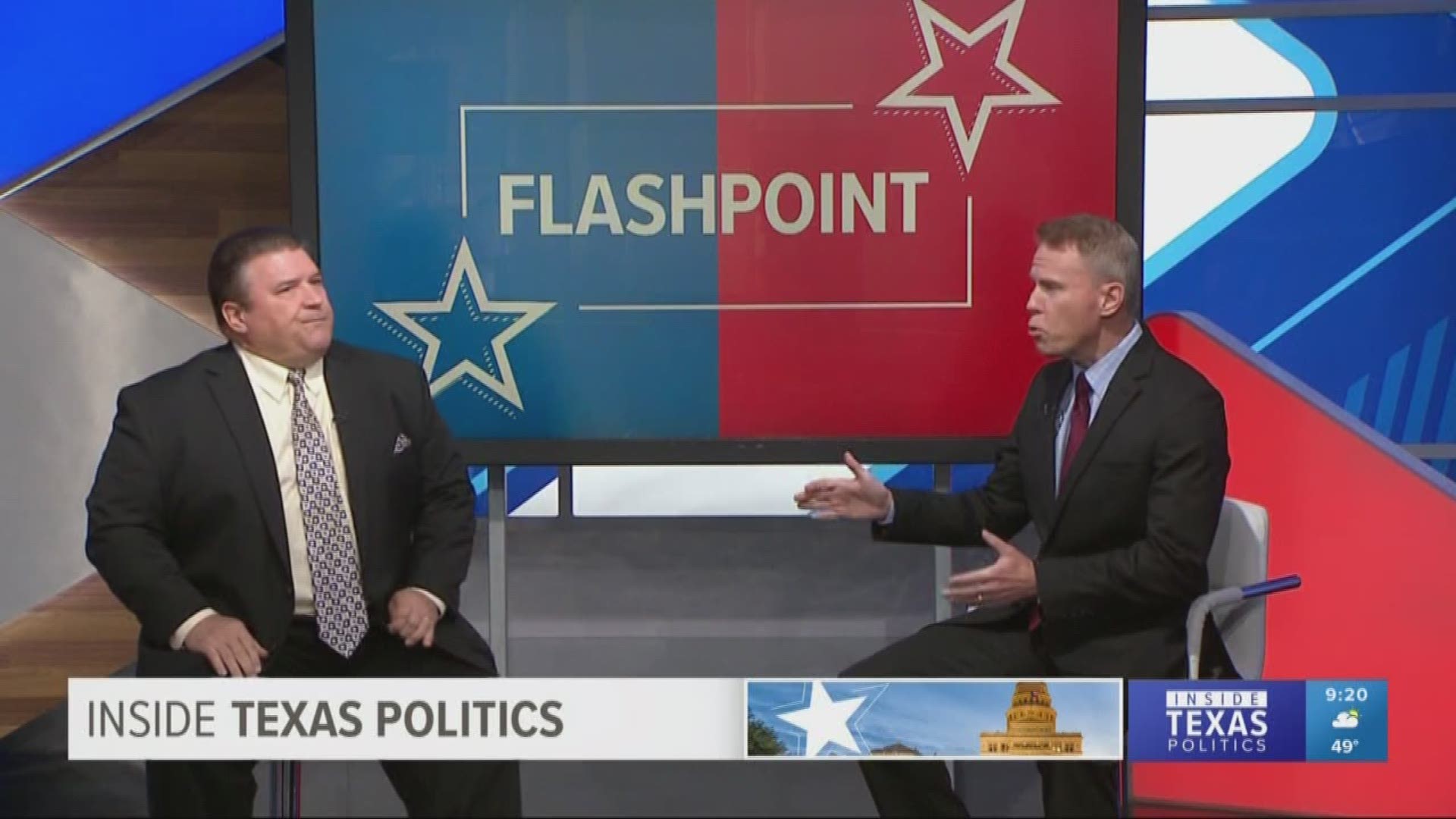Tuesday's slate of presidential contests — Arizona and Utah for both parties, with caucuses in Idaho for the Democrats — was never likely to be the decisive day on the 2016 primary calendar. But in the long slog toward delegate majorities for both front-runners, it did inch Hillary Clinton and Donald Trump closer to a general election showdown.
Top takeaways from Tuesday's battles out west:
![Hillary Clinton wins Arizona Democratic primary [oembed : 82151756] [oembed : 82151756] [oembed : 82151756] [oembed : 82151756] [oembed : 82151756] [oembed : 82151756] [oembed : 82151756] [oembed : 82151756] [oembed : 82151756] [oembed : 82151756] [oembed : 82151756] [oembed : 82151756] [oembed : 82151756] [oembed : 82151756] [oembed : 82151756] [oembed : 82151756]](/Portals/_default/Skins/PrestoLegacy/CommonCss/images/smartembed.png)
Another winner-take-all win for Trump
Florida, with its 99 delegates and the knockout blow it delivered to rival Marco Rubio a week ago, may have been a more significant win for the New York billionaire, but a victory in Arizona's winner-take-all contest last night was essential to Trump's chances of securing the 1,237 delegates needed ahead of the July Republican National Convention. The 58 delegates Trump walked away with guaranteed he'd add to his overall delegate lead and will raise further doubts about whether anyone, including Ted Cruz, can stop the front-runner from ultimately claiming the GOP nomination.
Trump's triumph in Arizona was hardly a surprise. Polls showed him ahead, and his tough stance on illegal immigration, along with high-profile endorsements from former governor Jan Brewer and Maricopa County Sheriff Joe Arpaio, set the state up to be an ideal fit. But even if he'd won narrowly, the GOP race has passed the point where it matters whether he ended up above or below expectations in the state. All that matters is winning and amassing delegates, and Trump is showing no signs of slowing down on either count.
![GTY 516540254 A ELN ELE USA AZ [image : 82152044]](http://www.gannett-cdn.com/media/2016/03/23/USATODAY/USATODAY/635942917677340996-GTY-516540254.jpg)
It's Clinton vs. the GOP now, as far as she's concerned
The Democratic presidential race certainly isn't over. Bernie Sanders has a lot of money, and he had a nice night on Tuesday. He came out on top in Utah and Idaho — and by large margins. On Saturday he could pick up multiple wins among the three states that hold caucuses, Alaska, Hawaii and Washington.
But, as was the case a week ago and two weeks ago and three weeks ago, Clinton's edge remains sizable. While Arizona's primary wasn't winner-take-all in the Democratic race — none of the party's contests are — Clinton's win there was so overwhelming that she stood poised to claim the vast majority of the state's delegates. Even with big wins in the two caucuses, Sanders has failed to demonstrate an ability to win a large primary by a big margin — which is his only real chance of cutting into Clinton's overall delegate lead. Her evolving status from Democratic front-runner to increasingly likely Democratic nominee is evident in her post-primary remarks to supporters. Rather than trying to draw sharp contrasts with her rival for the nomination, Clinton's strongest words were for Trump and Cruz. "What Donald Trump and Ted Cruz and others are suggesting, it’s not only wrong, it’s dangerous," she said.
![AFP 550296853 A POL USA ST [image : 82152372]](http://www.gannett-cdn.com/media/2016/03/23/USATODAY/USATODAY/635942931114487131-AFP-550296853.jpg)
Calendar may not be kind to Cruz
Cruz did what he had to do on Tuesday by winning the Utah caucuses. What's more, news networks projected he would clear the 50% threshold needed to secure all of the state's 40 delegates.
However, the next several states, where the Texas senator will need to cut into Trump's overall lead if he hopes to tighten the race and force a contested convention, do not appear favorable. Cruz has tended to fare well in caucus states, where his superior campaign organizational skills can be put to use, and in states with large evangelical populations. The upcoming contests in April include the Wisconsin primary, the New York primary and April 26 primaries in Connecticut, Delaware, Maryland, Pennsylvania and Rhode Island. Not exactly Cruz country, it would seem, though his campaign would argue that if the race becomes a one-on-one contest, things will change. Which brings us to...
![AP GOP 2015 CRUZ BELGIUM ATTACKS A ELN USA DC [image : 82153226]](http://www.gannett-cdn.com/media/2016/03/23/USATODAY/USATODAY/635942989026699899-AP-GOP-2015-Cruz-Belgium-Attacks.jpg)
Kasich fades from conversation
It was just a week ago that a jubilant John Kasich was celebrating his campaign-saving win in his home state of Ohio. On Tuesday, the Ohio governor was shut out of delegates. That wasn't a shock, but it remains a devastating blow to a candidate who needs a contested convention for any remote shot at the nomination but who is now battling charges from Cruz that he's a "spoiler."
If there's any good news for Kasich, it's that, at least on paper, the contests in the latter weeks of April may not set up well for Cruz and could allow Kasich to pick up delegates. But unless the Ohio governor can show some strength in the next GOP primary in Wisconsin in two weeks, the calls for him to step aside will only grow louder.
![AP GOP 2016 KASICH MINNESOTA A ELN USA MN [image : 82153266]](http://www.gannett-cdn.com/media/2016/03/23/USATODAY/USATODAY/635942994871589366-AP-GOP-2016-Kasich-Minnesota.jpg)
Terror once again shadows 2016 race
As it has before in the 2016 campaign — after the Paris attacks in November and the San Bernardino, Calif., shooting in December — the specter of terrorism hung over the presidential race following Tuesday's attacks in Brussels. The candidates were quick to react, with Trump tweeting that he had been "proven to be far more correct about terrorism than anybody," while Clinton, following her Arizona win, told supporters in Seattle "in the face of terror, America doesn’t panic, we don’t build walls or turn our backs on our allies."
The terrorist threat and America's response will be defining issues in the fall campaign — that much we already knew. But the tenor and substance of the two front-runners' responses indicate the stark choices voters will face in selecting a new commander in chief.

![High Turnout for Western State Voters [video : 82153972]](http://videos.usatoday.net/Brightcove2/29906170001/2016/03/29906170001_4813804147001_4813724025001-vs.jpg?pubId=29906170001)

